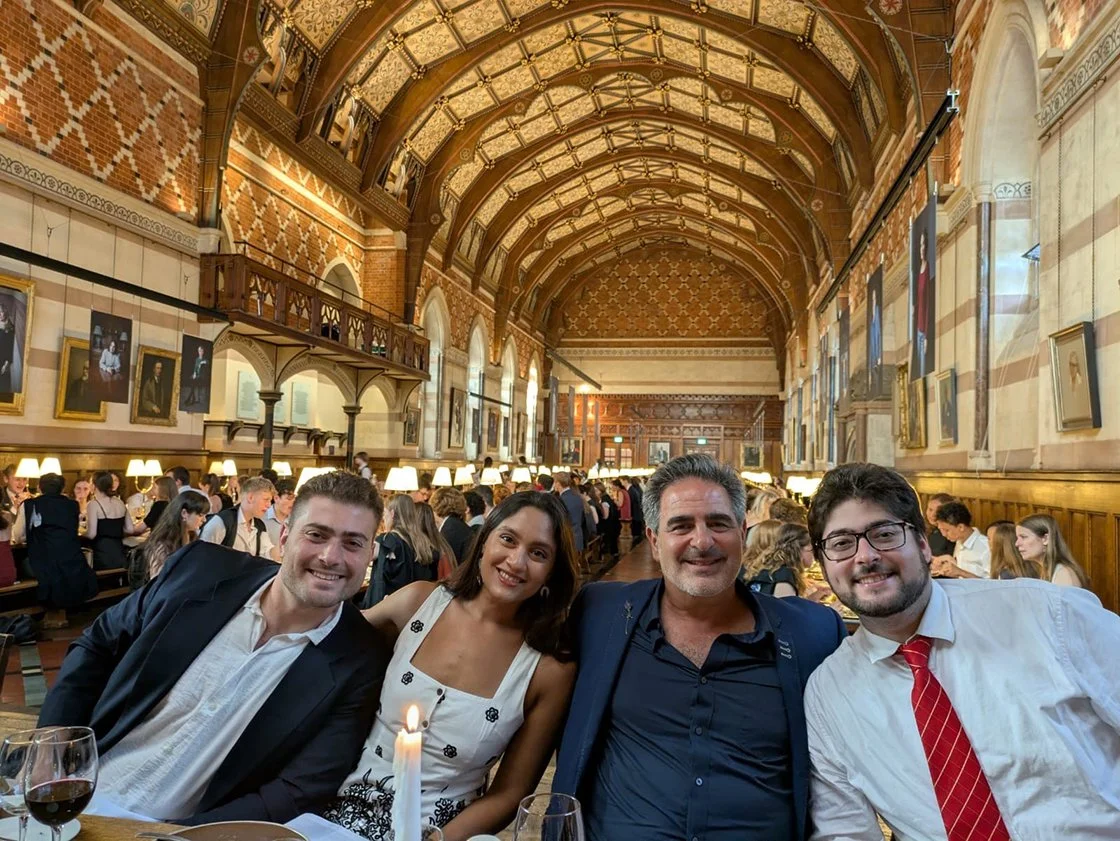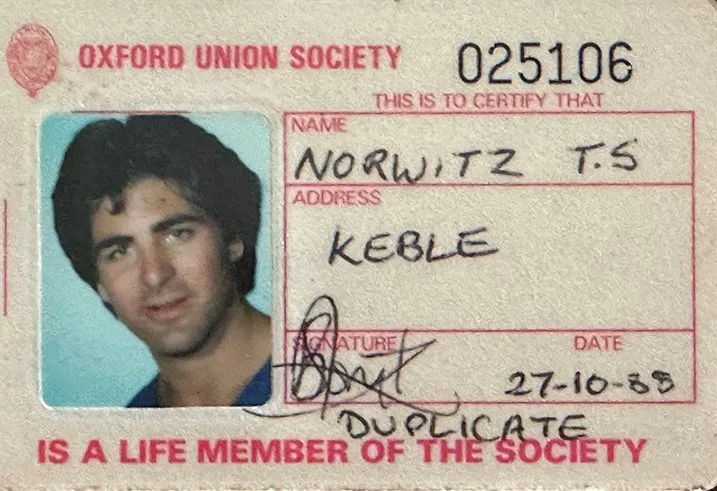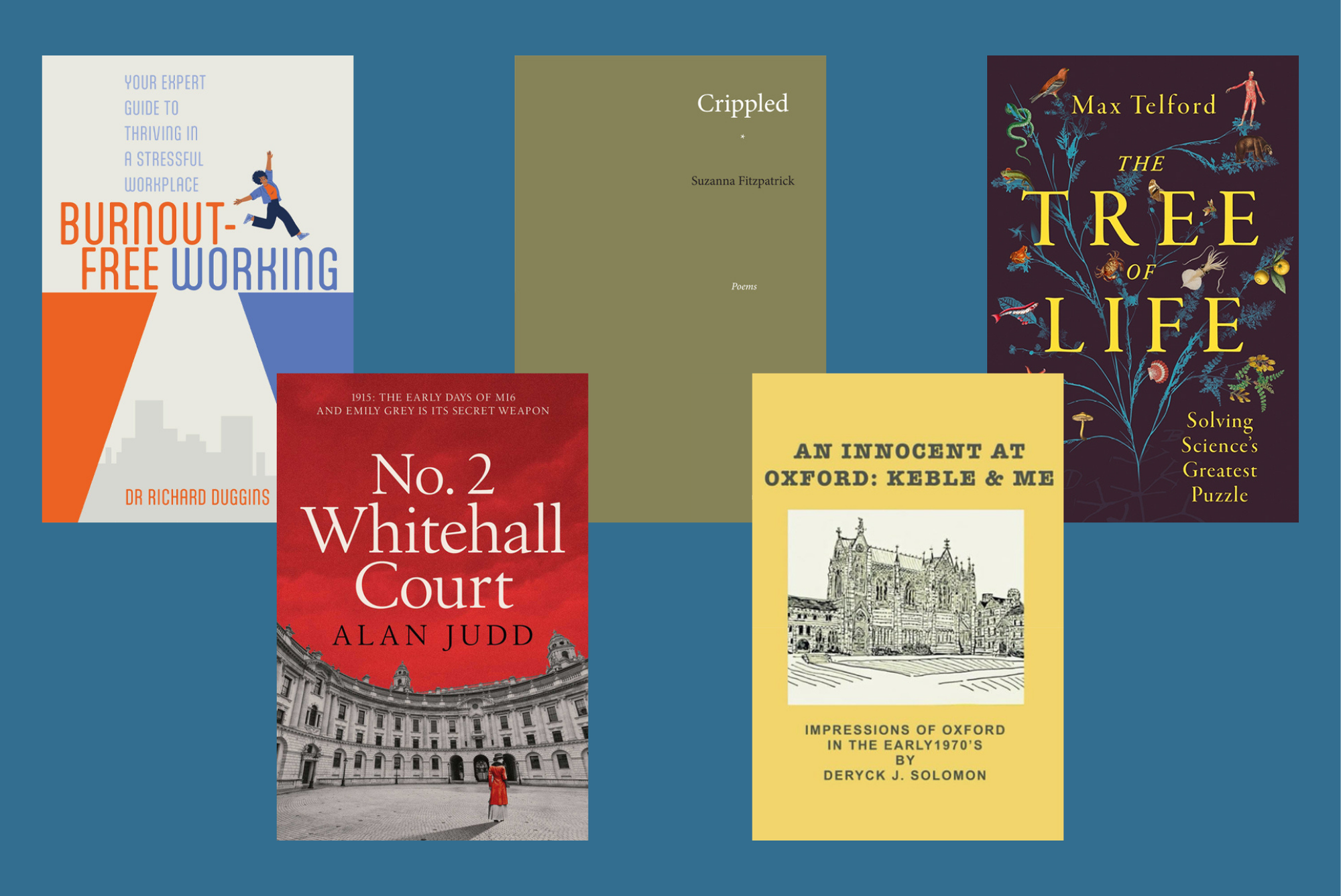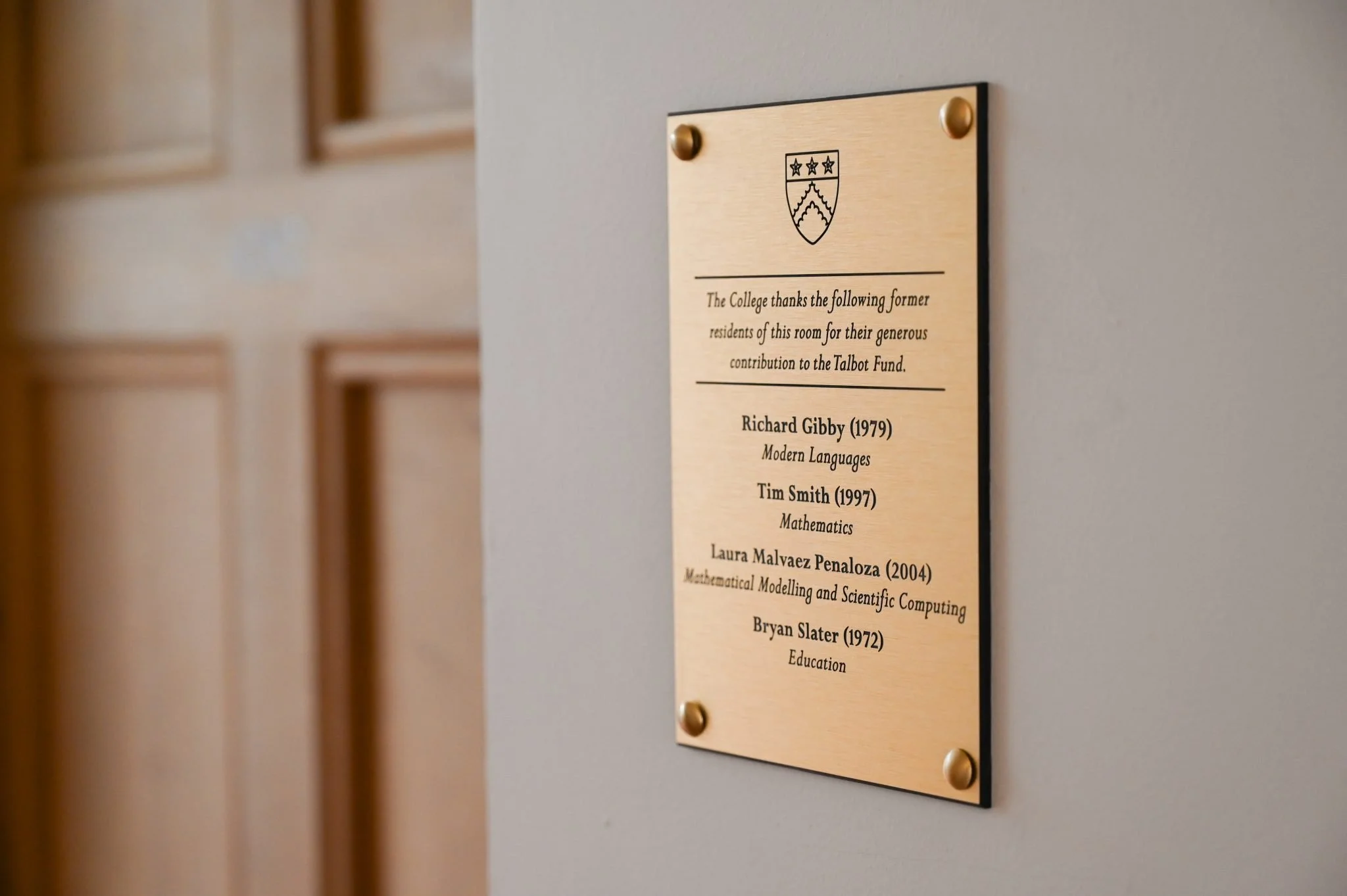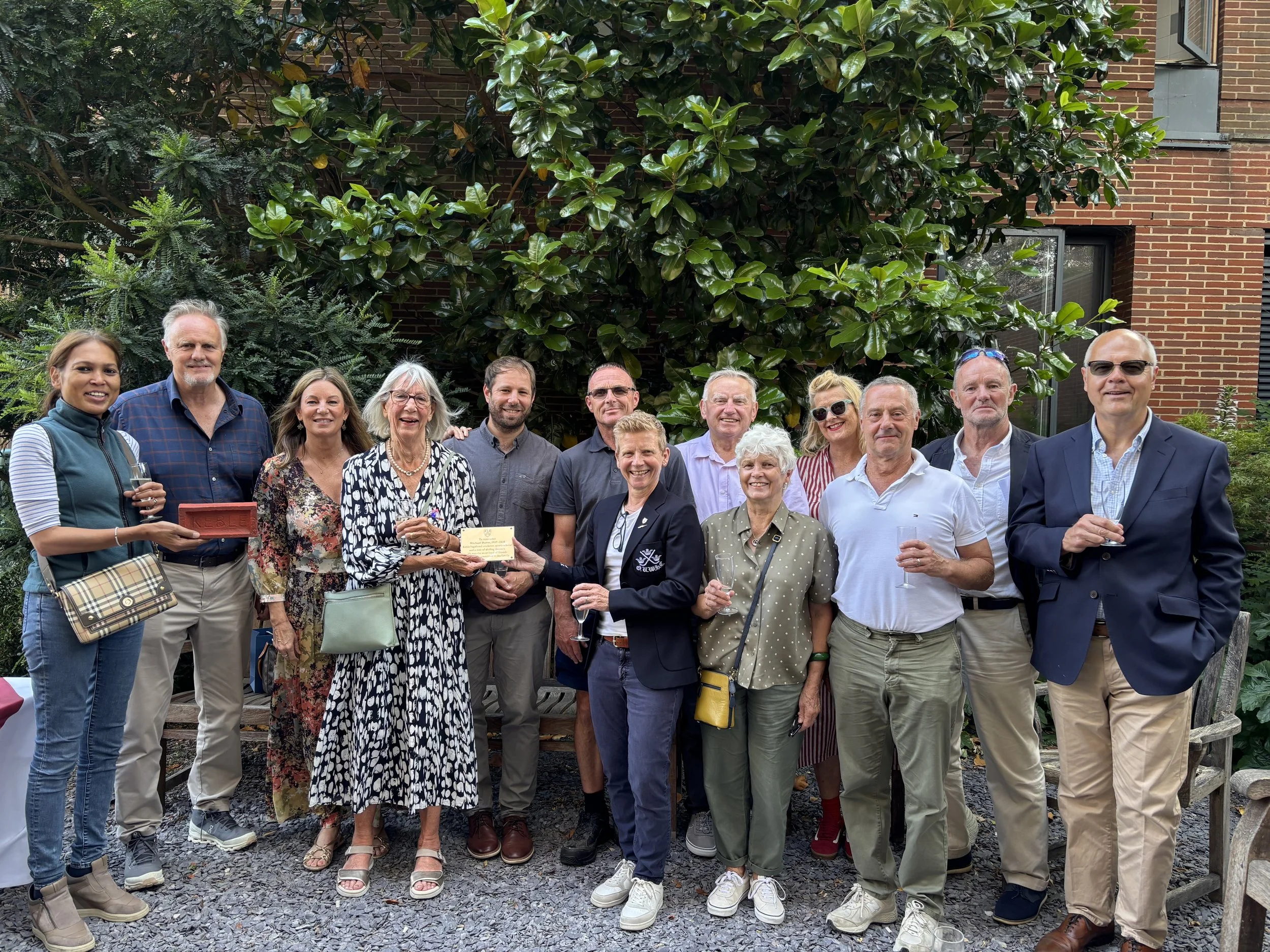What Keble Taught Me | Trevor Norwitz
Trevor Norwitz with his sons Raphael (l) and Herschel (r) and their friend Angel Maredia.
After leaving Keble, Trevor Norwitz, who hails from Cape Town, went to New York to complete his studies and never left. He recently retired from a 35-year career as a partner at a leading law firm, focusing on corporate governance and mergers and acquisitions (with a side-hustle in international humanitarian law). He has been teaching law at Columbia for over 20 years (and now also lectures at Oxford).
Trevor Norwitz (1987 Jurisprudence) writes:
I came up to Oxford as a senior status law student, having done pretty well in the Roman Dutch law courses I had taken at the University of Cape Town. Because I could remember what Justinian or Grotius had said about this or that, I thought I was hot stuff. Keble’s law dons soon disavowed me of that delusion. Oxford did not teach me much black letter law (which is just as well as it would not have been very helpful in my New York law career), but it did teach me how to think.
The late Jim Harris, the senior law tutor at Keble for many years, was brilliant – and blind. He had a shock of white hair and a copious white beard, and smoked his pipe throughout tutorials, so that his face was always enveloped in a thick white cloud. One could not tell where he ended and the smoke began! He would listen to his students reading their essays with his double-jointed arm folded over the top of his head, stroking the opposite side of his face. When he spoke, it was like hearing from the burning bush or the top of Mount Sinai (if the Big Guy spoke in an adenoidal English accent). “Is that really what Lord Denning said?” he interjected. “I’m pretty sure,” I answered, “I read the case yesterday.” Emerging from his cloud, he manoeuvred his hand over the black spines of the braille books on his shelves, eased one down and, with his hand dancing across the page, said: “Yes… I thought so… that’s not exactly what his Lordship said, is it?” And he proceeded to describe a subtle variation that completely unraveled my carefully constructed argument. It was in fact on many an occasion that Dr Harris elegantly but brutally dismantled the work of tutees, instilling in me the lesson that if you don’t want to be humiliated, you should be well prepared.
In similar vein, in one of my favourite weeks of education of all time, I was tasked by my Moral Philosophy tutor James Griffin, the eminent defender of utilitarianism, to express where I thought the law should land on abortion rights. After reading numerous thought-provoking papers, I concluded (boringly) that the US Supreme Court got it right in Roe v. Wade and viability was the appropriate touchstone. With a few probing questions that would have made Socrates blush, Dr Griffin imploded my thesis and left me stammering like a baby.
With so many wonderful memories and life-long friendships formed, it was my pleasure to stay connected to Keble for 35 years after going down, and I have relished the opportunity to return (and enjoy many wonderful High Table dinners) as part of the Oxford Next Horizons mid-career programme.

